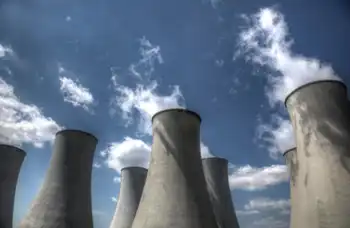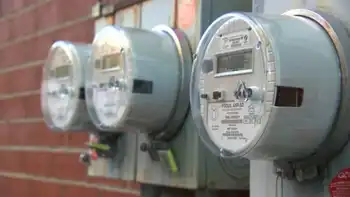Georgia Power aims to rely less on coal
By Savannah Morning News
Substation Relay Protection Training
Our customized live online or in‑person group training can be delivered to your staff at your location.

- Live Online
- 12 hours Instructor-led
- Group Training Available
In it, the commission approved the giant utility's intention to rely less on coal and more on other energy sources, including conservation, as the way to prepare for electricity demands over the next 10-20 years. Two-thirds of the company's power currently comes from coal.
The company's plan calls for it to begin its first large-scale operation of solar energy generation and the exploration of wind energy off the coast of Georgia. It will also launch seven campaigns designed to encourage greater consumer conservation.
"It's a huge deal," said Justine Thompson, with GreenLaw in Atlanta, an organization that takes on legal fights for environmental issues. "Southern Company Georgia Power's parent is the largest energy producer in the country. The fact that they're moving away from coal is the end of an era."
Southern Co., which also operates subsidiaries in Florida, Mississippi and Alabama, consistently ranks near the top of annual lists of major polluters because of the number of coal-fired plants it runs. Elected state regulators have traditionally OK'd reliance on coal because it is plentiful and cheap, helping Southern electric rates hover about 15 percent below national averages.
Nuclear plant construction stalled for 30 years following the Three Mile Island reactor accident. Today, the regulatory environment has changed, and Georgia Power is building the nation's first two reactors in three decades.
For years, solar and wind were described as unsuited for the South's weather conditions and geography, although Georgia Power is taking another look in this year's version of its integrated-resource plan, a document it updates every three years.
Natural gas has been a growing factor in power generation, but it is subject to competing demand from large factories and possible interruptions due to storms in the Gulf of Mexico. But pipeline capacity has increased in recent years, and Georgia Power is converting one of its older coal plants to a bigger natural-gas unit.
Stricter environmental regulations are also changing the economics of coal. Even without a "carbon tax" or "cap and trade" passing in Congress, the federal government is stepping up its authority over power plants.
And an ongoing court case related to a proposed power plant owned by an independent company, Longleaf, could open the door in Georgia to regulation of carbon dioxide emissions. Any combination of those factors could lead regulators to force Georgia Power to shut down more of its older coal plants.
"The financial outlook for coal is grim," Thompson said.
Plus, the market price of coal has swung more in recent years than it had, creating more challenges for the company.
"With fuel prices being very volatile, we want to bring more natural gas as well as nuclear into the mix," said spokeswoman Lynn Wallace.
Even as Georgia Power goes on a coal-reduction diet, other utilities are still trying to build new coal plants. Power4Georgians, a consortium of electric-membership cooperatives led by Cobb EMC, is seeking environmental permits to build a coal plant near Sandersville.
Why coal if the largest utility is going in other directions?
"It's not an 'or.' It's an 'and.' We need it all," said consortium spokesman Dean Alford.











